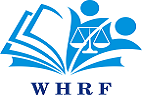SENEGAL
The Criminal Code was amended to increase sentences for perpetrators of rape and child sexual abuse. Police used excessive force. Detainees protested against poor health conditions and health workers threatened strikes over inadequate resources. Communities were at risk of forcible eviction. There was a resurgence of violence in the Casamance conflict.
Background
In January, the Criminal Code was amended, criminalizing rape and child sexual abuse and increasing sentences for both.
In response to the COVID-19 pandemic, the government introduced state of emergency legislation in March, giving them extensive powers to rule without parliamentary oversight. Most of the restrictive measures, including a national curfew, were lifted in June.
The ruling party, opposition and civil society organizations came together under the Political Commission of National Dialogue to discuss reforms related to the rights to freedom of expression and peaceful assembly.
Violence resurfaced in Casamance with several attacks against military positions, and targeted killings.
Excessive use of force
Security forces used excessive force to maintain public order.
In January, a man died in police custody in the city of Fatick after he was allegedly beaten by police. An autopsy, which found he had died from “natural causes”, led to violent protests. The authorities then began an investigation into three police officers suspected of being responsible.
In May, the gendarmerie tear gassed a youth press conference, in the town of Cap Skirring, called to highlight the lack of drinking water in the town. At least two participants were seriously injured.
In June, four protesters were injured when police violently dispersed them while they were demonstrating against the 2013 demolition of their homes in Gadaye suburb in the capital, Dakar.
Freedoms of expression and assembly
In June, police arrested Assane Diouf after he criticized the government in a live video discussion. He remained in detention on charges including inciting an armed gathering and issuing public insults online.
In August, members of Dahiratoul Moustarchidine wal Moustarchidati, a religious organization, ransacked Les Échos newspaper’s office after it alleged that the organization’s leader had contracted COVID-19. Six suspects were arrested for the attack.
In September, Adja Ndiaye, a journalist working for Dakaractu was verbally abused and assaulted by police agents in Dakar, while reporting on a story. She suffered injuries to her neck and back from the assault and her camera was also damaged.
Right to health
Health workers
In June, the doctors’ union SAMES threatened strike action over the inadequate provision of PPE and other resources to manage the COVID-19 pandemic, and frontline doctors threatened to strike over unpaid salaries and poor working conditions.
Prison conditions
Detention facilities were overcrowded and health risks to inmates were exacerbated by COVID-19. By October, there were 10,804 detainees of which 5,052 were in pre-trial detention. Between March and September, the government released 3,731 prisoners in response to the COVID-19 pandemic.
The death of two detainees from COVID-19 in Thiès prison led to hunger strikes by inmates calling for mass testing. At least six people died apparently due to poor detention conditions while in police custody and in Thiès and Diourbel prisons.
Rights of lesbian, gay, bisexual, transgender and intersex (LGBTI) people
LGBTI activists were subjected to smear campaigns and death threats. Under the Criminal Code, same-sex sexual relations were punishable by up to five years’ imprisonment. In October, 25 men and boys were arrested at a private party in Dakar and charged with “unnatural acts” and detained. On 6 November, a court in Dakar sentenced two of the men indicted to six-months and five men to three-months in prison. The rest, including those who were under-age, were acquitted.
Children’s rights
A draft law to regulate Qur’anic schools awaited parliamentary approval. Twelve Qur’anic students were reportedly tortured and otherwise ill-treated by their teachers. In February, a 13-year-old boy was beaten to death by his teacher in Louga city. In March, the Dakar Criminal Court sentenced a Qur’anic teacher to 10 years’ imprisonment for “assault and battery of an individual under 13”; another staff member was sentenced to five years’ imprisonment for failing to assist the victim.
In response to the COVID-19 pandemic, the government said it had taken 2,015 children off the streets, returned 1,424 of them to their families and placed the rest in government centres.
Forced evictions
Rural communities in the Thiès region continued to challenge the threat of forced eviction as agricultural and petrochemical companies encroached on their land. A farming community in the village of Ndingler, near Mbour city, lost 0.75 square kilometers of communal land to an agri-business project. In July, the authorities brokered a truce, allowing farmers limited access to their land.
The villagers of Tobène accused a petrochemical company of polluting their farmlands and challenged the government’s decision to allocate an additional 6 hectares of farming land to the company. The residents protested the company’s compensation offer of XOF9 million (US$16,110). In August, demonstrations turned violent and the gendarmerie arrested 22 residents, including the activist Ardo Gningue, who said he was tortured and otherwise ill-treated during detention in Tivaouane.
Abuses by armed groups
There was a resurgence of violence in Casamance. In August, Hamidou Diémé, a former combatant of the Movement of Democratic Forces of Casamance armed group, was killed in Diégoune in the Ziguinchor region, by unidentified gunmen. No one had been brought to justice for the attack by the end of the year.
